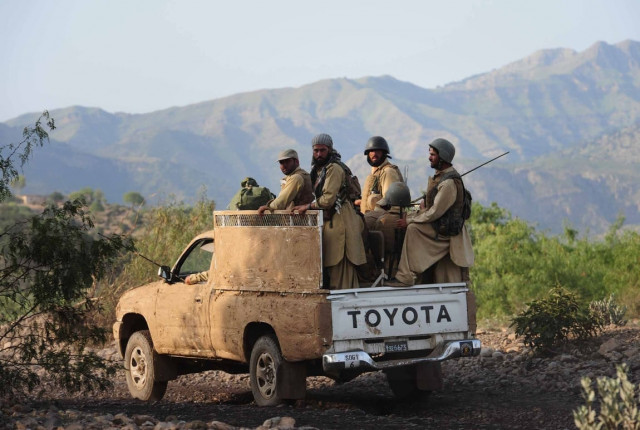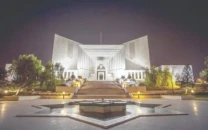Resources for military hinder welfare schemes
HRCP asks if policies are in accordance with development-needs.

The division of resources between the defence and the social sector in Pakistan is tilted towards the former, preventing improvements in the welfare of the people, according to Human Rights Commission of Pakistan report on the federal and provincial budgets of the current year.
The report titled Budgeting for Rights’ states that the actual difference between the defence and the social sector spending is greater than that reported in the budgets. It said while the defence budget of the country was Rs495.2 billion, up to Rs582 billion was being spent on the sector. In comparison, it said, Rs440.3 billion was being spent on the social sector (24 per cent less than defence spending).
Lawyer Hina Jillani said that there was a need to determine if the defence and the foreign policies of the country were in accordance with the development needs of the people.
HRCP director IA Rehman said at Rs495.2 billion, the defence budget did not include the expenses incurred on the rehabilitation of people displaced in the military operations in the tribal areas. The report mentioned that Rs1.1 billion would be spent during the year on seven development projects at universities run by the military and Rs73.2 billion on pensions of armed forces personnel. It said the Ministry of Defence’s expenditure on airport security and spending on federal government education institutions in cantonments and garrisons, defence divisions and defence production divisions were also funded from the non-military budget.
In comparison, the report said, funds allocated for the maintenance of law and order in the country were not enough. It also pointed to the low conviction rate as a possible explanation for the poor security situation in the country.
Health and education
The report mentioned that there had been no improvement in the disparity in health sector spending between rural and urban areas, the latter getting the majority of the funds. It said there was no provision in the health sector budget for emergency requirements in times of natural disasters despite the experience of 2010 floods. It said the health sector was worse off then the education sector. The report recommended that the education budget be increased to four per cent of gross domestic product. It called for an immediate revision of the curriculum and suggested that after devolution of education to the provinces teaching at schools be carried out in regional languages.
Labour
The report stated that the Rs7,000 per month minimum wage was not enough.
Quoting an HRCP survey, IA Rehman said that only 15 to 20 per cent of workers in the country were receiving a wage equal to or more than the minimum wage. He said up to 80 per cent were working at wages lower than those required by the law. It mentioned labor unions’ concern about the devolution of the Labour Ministry. It said the unions were concerned that their struggle for welfare would be hurt by devolution.
Govt subsidies
It said there were no mechanisms in place to ensure that government subsidies, particularly those given on food commodities and fuel, were reaching the target population groups.
It said while the Benazir Income Support Programme was a positive measure, the stipend was too low at Rs1,000 a month. It suggested that a poverty scorecard be developed in cooperation with the National Database Regulatory Authority (NADRA) to ensure that the target groups benefit from these funds.
Housing
The report said that the budget mentioned that housing would be provided to up to 250,000 people in the country this year. However, it said, there was a need to formulate a long-term housing policy in accordance with population growth projections. The policy, it added, should also benefit people living in slums.
Disaster management
The HRCP report said funds allocated for disaster management were not enough keeping in view the experience of the current and the previous years. It mentioned that Sindh had allocated Rs0.28 billion for the current year, even though its expenditure last year had been Rs10.4 billion.
Published in The Express Tribune, December 28th, 2011.



















COMMENTS
Comments are moderated and generally will be posted if they are on-topic and not abusive.
For more information, please see our Comments FAQ